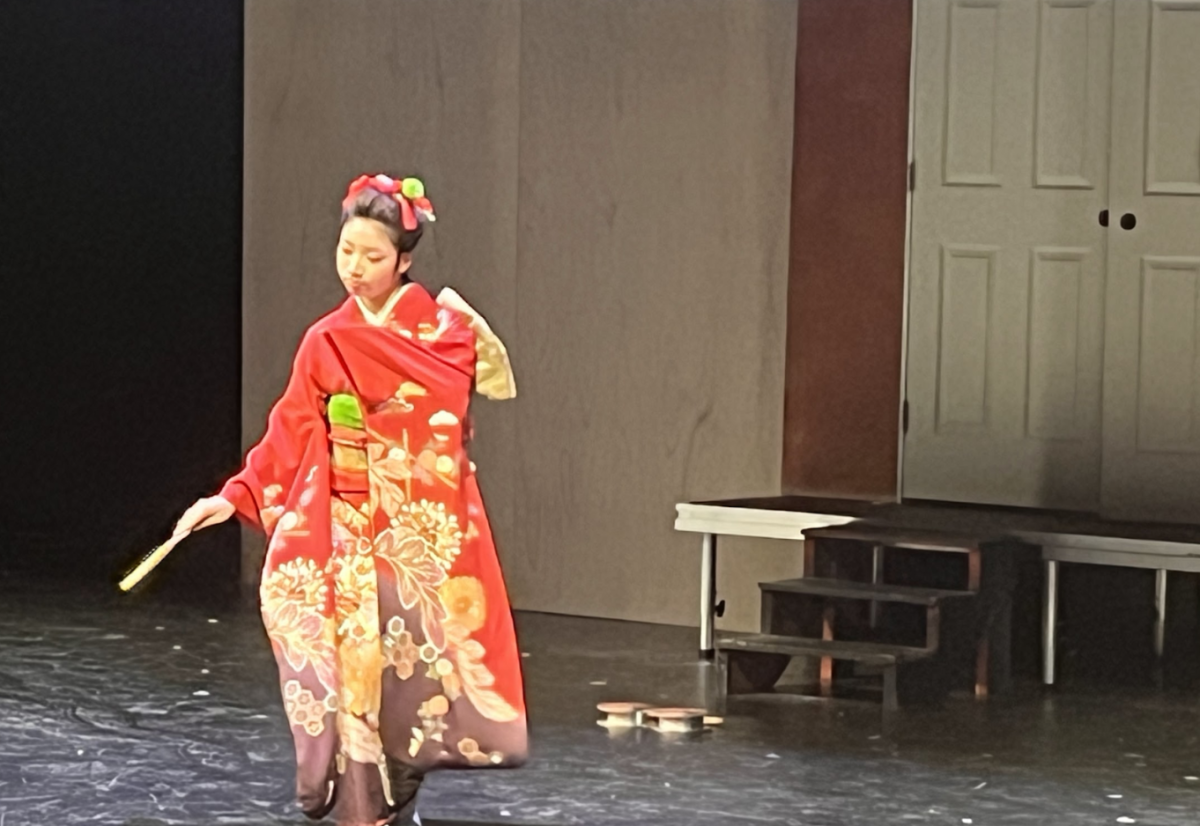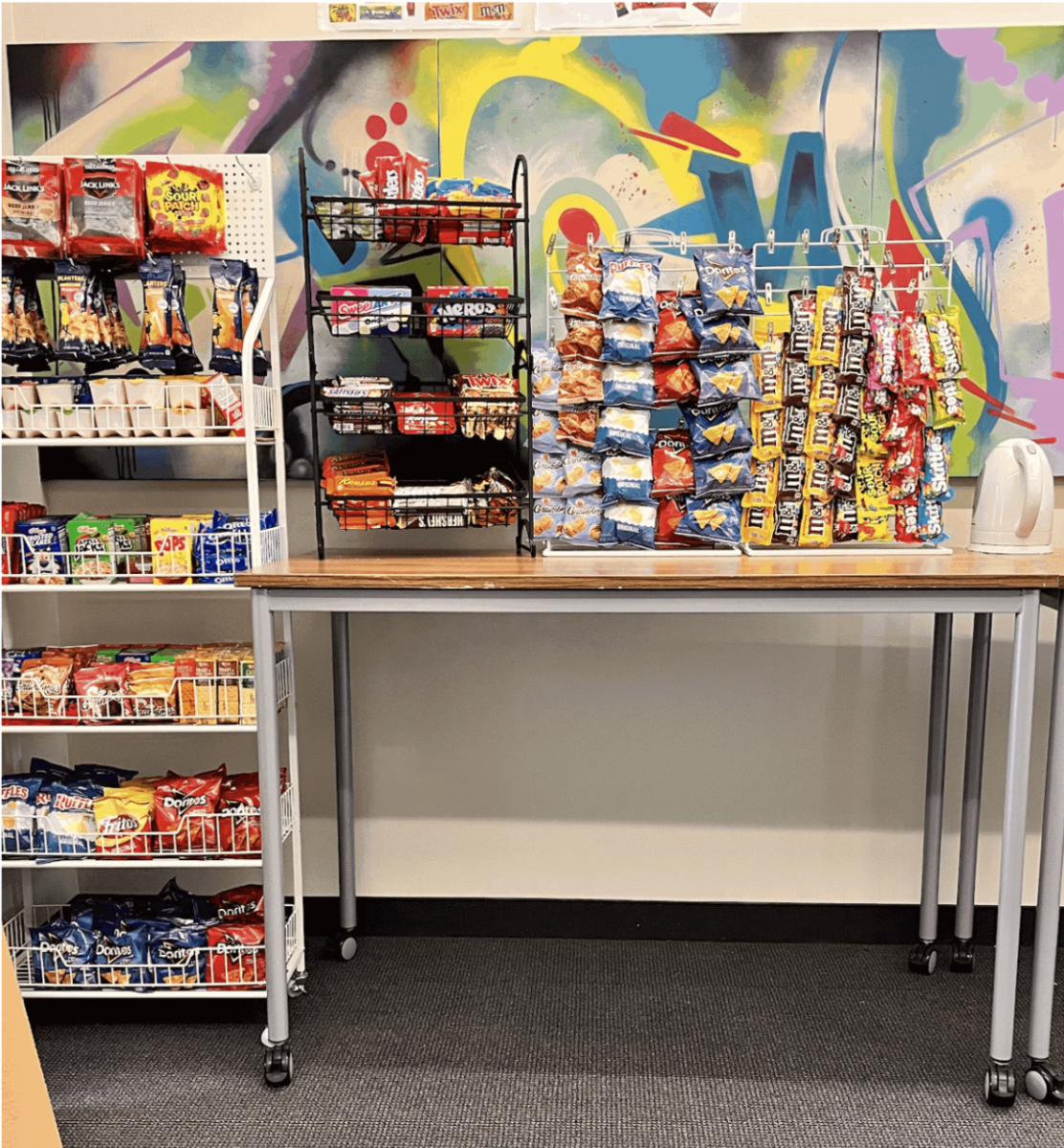Madeleine Ainslie
Design Editor
Spending an afternoon atop the Brooklyn Bridge simply observing the structure, the city below and fellow bridge-goers was a normal school day for junior Siobhan Lewkowitz who spent the past semester attending an urban based experiential education program in New York.

Lewkowitz often spent weekends and class periods exploring different aspects of New York City as part of CITYTerm’s Urban Core curriculum, which focuses largely on the city’s culture and history. The semester-long program is open exclusively to 30 juniors and seniors each term.
“I had both basic classes which were my Spanish and math classes, and then Urban Core classes which were specific to CITYTerm and dealt with New York City,” Lewkowitz said.
Although Lewkowitz and her peers lived on on the 96-acre campus of the Masters School in Dobbs Ferry, N.Y., they regularly took day trips into the city. Outside of the dorms, CITYterm was far from a typical boarding school experience.
“It was such a different way to learn,” Lewkowitz said. “I would implement every aspect of my education in my life and with the people I talked to, versus sitting in a classroom doing math.”
Her experience at CITYterm was unique in many aspects, including the ways her peers approached learning.
“All the students were so incredibly invested in what they were doing,” Lewkowitz said. “It wasn’t just ‘Okay, I’m done with this assignment.’ It was different because everyone was staying up until three in the morning collaborating and discussing projects, which was the norm. It was average for people to put their all into classes and projects.”
The program’s goal is to educate students on the basis of experience, according to CITYterm’s mission statement.
“We would go out into the world and discuss major implications of smaller things,” Lewkowitz said. “For example, ‘Here’s the bridge. What would happen if it were to fall to the right a bit?’ or ‘How does climate change affect the park down the street?’”
The nonprofit prompts students to see things differently, and think about what is beyond themselves.
“All classes were discussion based,” Lewkowitz said. “They were very cohesive and taught us how to see the ways in which things connect, even if they seem unrelated. It showed me how learning all adds up to something greater and you use what you learn, which was a big part of how CityTerm worked and taught.”
Lewkowitz was not the only one who noticed a change in her outlook on learning.
“I think being away gave her a new perspective,” Lewkowitz’s mother, Mairi McKeever said. “It affected how she sees both the world and people and how she can then apply that to what she’s learning.”
“CITYTerm was really important in my personal development,” Claire Kessler-Bradner, former CSH art teacher and graduate of CITYTerm said. “It showed me all the things I could do on my own and how to sort of look at the world around me in a different way.”
Kessler-Bradner attended CITYTerm in the fall of 1997 in the third semester of the program’s launch. Based on her experiences with the course, Kessler-Bradner introduced the program to Convent during her employment.
“I was eager to connect the girls with CITYTerm because I think it opens a lot of possibilities in the world when you can see that learning can take so many different forms,” Kessler-Bradner said.
Applying knowledge and stepping outside comfort zones was a big part of what CITYterm pushed students to do, according to Lewkowitz.
“In Urban Core classes we would spend a week or two on different subjects dealing with the city,” Lewkowitz said. “We would set up interviews, talk to people, learn about certain aspects of the New York and it really forced us to go to the outside world and apply ourselves.”
A sizable adaption to life at CITYterm was managing her time, according to Lewkowitz.
“I didn’t have my parents to help keep me on top of things and tell me go to bed which was tough,” Lewkowitz said. “I became a lot more independent because I wasn’t with my family in my usual settings.”
McKeever often found it challenging to find the balance of how much – or little – to communicate with her daughter.
“The hardest part as a parent was that I wanted to be there if she needed help or was in a difficult situation,” McKeever said. “I also wanted her to enjoy a great situation so I would wonder if everything was okay and wanted to check in with her, but and at the same time I knew that I needed to give her space to get comfortable on her own.”
Lewkowitz came back to San Francisco in December and is attending Convent for her second semester of junior year.
“Because I left in the fall I feel like I’ve missed a lot,” Lewkowitz said. “It’s tough to be away from the friends I made there and it’s weird being back here with all my old friends.”
Lewkowitz’s semester in New York played a significant role in deciding the courses she would be able to take upon returning to school in San Francisco.
“I couldn’t take any AP classes,” Lewkowitz said. “To do so I would have needed to take it earlier in the year and it would be too hard to make up the class work.”
Lewkowitz was the first and likely the last Convent student to participate in the program as the school is no longer affiliated with CITYterm so as to encourage students to engage in exchanges within the Sacred Heart Network, according to Head of School Rachel Simpson.
“I notice new things now,” Lewkowitz said. “I find myself wondering how things can be altered for the better and what the world today would be like if we did make little changes.”









Dolores McKeever Donahue • Mar 31, 2014 at 7:03 pm
Great article,I enjoyed learning more about CITYterm and Siobhan’s experience. Siobhan’s grandmother and I were classmates at Convent class of 1948.